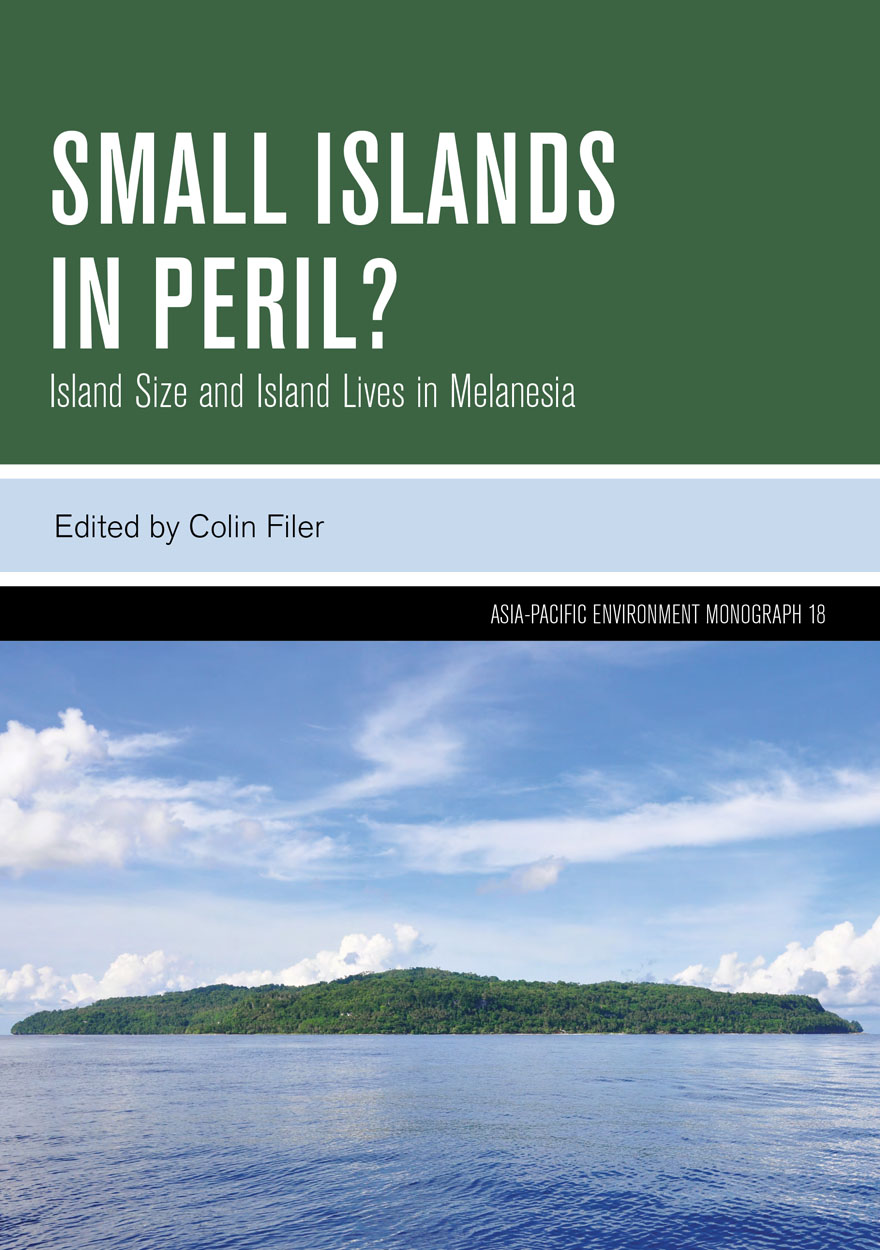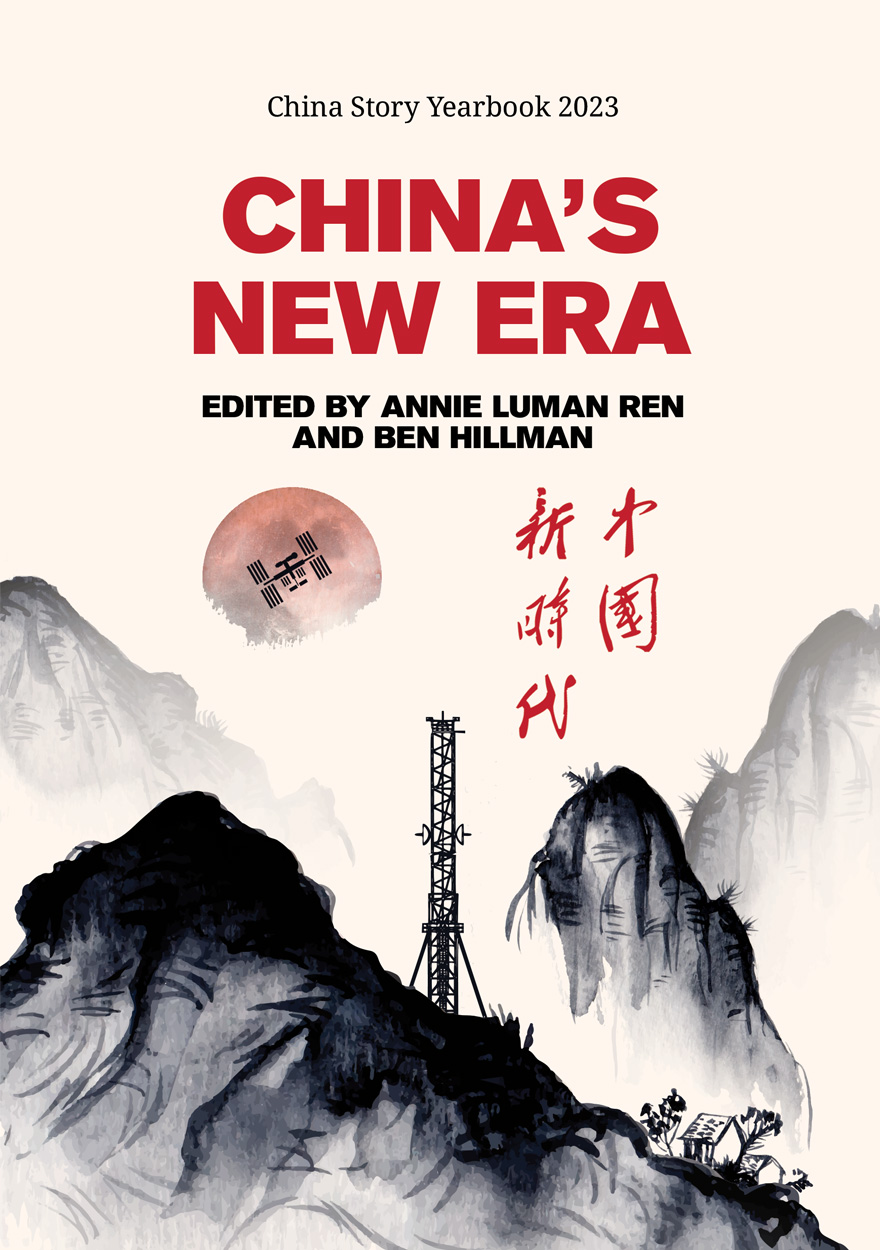Search titles
Displaying results 1 to 10 of 225.

Vā Moana »
Space and Relationality in Pacific Thought and Identity
Edited by: Albert L. Refiti, A.-Chr. Engels-Schwarzpaul, Lana Lopesi, Billie Lythberg, Arielle Walker, Emily Parr
Publication date: 2026
Vā may be a small word, but it carries expansive meaning. Rooted in Indigenous Pacific knowledges—Samoan vā, Tongan tā vā, Māori and Hawaiian wā—this concept of relational space binds people, ancestors and cosmologies across time and place. Since the late 1990s, vā has become a powerful framework in academic and cultural contexts, energising conversations across Oceania and beyond.
As the world grapples with the rise of hyper-individualism, vā offers an urgent and restorative alternative: one that centres connection, responsibility and collective belonging. This rich collection of individually and collaboratively authored chapters explores how vā, wā, and related Indigenous concepts are lived, theorised and practised today. Drawing from diverse disciplines and grounded in specific cultural contexts, these contributions deepen our understanding of relationality, space and place across the Moana.
The AUT Vā Moana Research Centre is dedicated to exploring spatial concepts through Moananui (Pacific) thought. Established in 2012 by Albert L. Refiti and A.-Chr. Engels-Schwarzpaul at Auckland University of Technology’s School of Art and Design, Vā Moana brings together a vibrant international network of scholars. Their work reimagines how space is understood and experienced, both in contemporary and customary Pacific contexts. By engaging Indigenous ways of knowing—through the making of space, objects, rituals and performance—Vā Moana contributes to transforming global conversations around relationality, place and being in the world.
Coming soon
Notify me
Believing on Upside Down Country »
The Changing Faith-scape of Bendigo
Publication date: 2026
The city of Bendigo and surrounds, in central Victoria, Australia, is described today by its Traditional Owners, the Djaara people, as ‘upside down country’, because since 1851 the sacred earth has been rotated and removed by mining, changing its spiritual ‘faith-scape’. Since the arrival of settlers and sojourners of European and Chinese descent, relations between peoples in this region have been powerfully shaped not only by the quest for gold and subsequent bases of material wealth, but also by developments in this religious and spiritual faith-scape. In this innovative study, the authors examine a range of historically distinctive Bendigo customs, rituals, activities and events, from the famous Easter Fair, saved for posterity by the intervention of a Chinese community figure in the 1870s, and now led each year by Djaara people, to demonstrations associated with the Bendigo mosque controversy of 2014. They find that an understanding of spirituality and belief has often been a strong basis for connecting with and showing humanity towards others. Drawing on both oral sources and the objects and spaces of the material culture of religion and belief, the authors provide a fascinating elucidation of past and present meanings of faith, in and around Bendigo, as a lived dimension of experience.
Coming soon
Notify me
Rethinking Histories of Indonesia »
Experiencing, Resisting and Renegotiating Coloniality
Edited by: Sadiah Boonstra, Bronwyn Anne Beech Jones, Katharine McGregor, Ken M.P. Setiawan, Abdul Wahid
Publication date: August 2025
Rethinking Histories of Indonesia: Experiencing, Resisting and Renegotiating Coloniality provides a critical evaluation of histories of Indonesia from the formal period of colonisation to the present day. The volume approaches Indonesian history through the lens of coloniality, or the structures of power and control that underpin colonisation and which persist into the present. Bringing together seventeen authors from across the world, the volume offers an alternative conceptualisation of Indonesian history and lays bare the enduring legacies of and processes that reproduce coloniality.
‘This is a significant and exciting volume in terms of its scale, the range of disciplines, approaches and topics included and, ultimately, for its contribution to the field of Indonesian history and historiography, and Indonesian studies and decolonial studies more broadly … The contributors to this book do [a great service to] students of Indonesian history, its cultures, society and politics, offering new sources, voices, approaches and perspectives. Overall, they provide a fresh and vital critique of not only Indonesia’s colonial history but its continuing lived influences on present day Indonesia and beyond.’
—Jemma Purdey, Australia-Indonesia Centre, Monash University

Dregs »
Love and Monsters in Small Town New Zealand
Authored by: Laura McLauchlan
Publication date: March 2025
Girls who join dog packs, boys who gain strength from trees, men who love bodies with nobody in them: Dregs is a collection of tenderly monstrous love stories, set in a shadowy small town of the same name. Based in South Canterbury, New Zealand, these lovingly disturbing fictions welcome the strange and other-worldly, while keeping an ethnographic eye trained on the classed, religious, gendered, racialised and species-based forces shaping this rural region of New Zealand's South Island.
While at times grotesque, these darkly loving, richly illustrated tales offer new avenues for ethnographic research and shed new light on the region, giving voice and form to unspoken aspects of this antipodean rural idyll. Shaped by a deep respect for the monstrous feminine, regardless of the gender of the bodies in which such forces appear, Dregs: Love and Monsters in Small Town New Zealand is a product of both an anthropological sensibility and a trust that naming and finding ways to live well with our monsters is a vital aspect of living well in our times.

Ritual Voices of Revelation »
The Origin Narratives of the Rotenese of Eastern Indonesia
Authored by: James J. Fox
Publication date: November 2024
This is a study of a collection of oral compositions of the Rotenese of eastern Indonesia. Recited in semantic parallelism, these compositions require a strict pairing of all words to produce correspondingly ordered verses. These narrative verses create an elevated discourse—a ‘scriptural voice’—intended to reveal the origins of Rotenese cultural life. The translations and exegeses of these origin narratives offer a work of world-class poetic imagination that recounts a dynastic contest between the Sun and Moon and Lords of the Ocean Sea and its epic consequences.
As background to the presentation of these narratives, this study provides a description of Rotenese life expressed in the complementary pairs that the Rotenese themselves use to categorise their world. A concluding chapter examines the Rotenese acquisition of Christianity and the subsequent retelling of the Biblical Genesis in Rotenese parallel verse, thus continuing the general examination of the use of parallelism as elevated ritual discourse. Gathered from poets from two domains on the island, most of these compositions date from fieldwork in 1965–66 and in 1973. The publication of these materials represents the summation of more than fifty years of research.

Small Islands in Peril? »
Island Size and Island Lives in Melanesia
Edited by: Colin Filer
Publication date: July 2024
This book explores the idea that small island communities could be regarded as canaries in the coal mine of sustainable development because of scientific and anecdotal evidence of a common link between rapid population growth, degradation of the local resource base, and intensification of disputes over the ownership and use of terrestrial and marine resources. The authors are all anthropologists with a specific interest in the question of whether the economic and social ‘safety valves’ that have previously served to break some of the feedback loops between these trends appear to be losing their efficacy. While much of the debate about economy–society–environment relationships on small islands has been overtaken by a narrow focus on the problem of climate change, the authors show that there are many other factors at work in the transformation of island lives and livelihoods.

Salish Archipelago »
Environment and Society in the Islands Within and Adjacent to the Salish Sea
Edited by: Moshe Rapaport
Publication date: June 2024
The Salish Archipelago includes more than 400 islands in the Salish Sea, an amalgamation of Canada’s Georgia Strait, the United States’ Puget Sound, and the shared Strait of Juan de Fuca. The Salish Sea and Islands are named for the Coast Salish Indigenous Peoples whose homelands extend across the region.
Holiday homes and services have in many places displaced pristine ecosystems, Indigenous communities, and historic farms. Will age-old island environments and communities withstand the forces of commodity-driven economies? This new, major scholarly undertaking provides the geographical and historical background for exploring such questions.
Salish Archipelago features sections on environment, history, society, and management, accompanied by numerous maps and other illustrations. This diverse collection offers an overview of an embattled, but resilient, region, providing knowledge and perspectives of interest to residents, educators, and policy makers.
Format: Hardback

China’s New Era »
Edited by: Annie Luman Ren, Ben Hillman
Publication date: June 2024
According to Communist Party discourse, China’s ‘New Era’ began when Xi Jinping was anointed Party boss in 2012. The shape of this New Era became eminently clear in 2023 when Xi commenced his third five-year term as General Secretary of the Party, a fortification of one-man authoritarian rule unprecedented in post-Mao China. Under Xi, the Party has expanded its influence over government, the economy and society. The Party-State is now more Party than State. The year 2023 saw other ‘new eras’ for China as well. Despite initial optimism sparked by the end of COVID-19 restrictions in late 2022, the Chinese economy in 2023 was buffeted by continuing property sector woes, record unemployment, and an unfolding local government debt crisis. Globally, China adopted a series of new and ambitious diplomatic initiatives to woo the Global South and amplify its voice on the world stage. The China Story Yearbook 2023: China’s New Era provides informed perspectives on these and other important stories that will resonate for years to come.

Ginkgo Village »
Trauma and Transformation in Rural China
Authored by: Tamara Jacka
Publication date: June 2024
Ginkgo Village provides an original and powerfully intimate bottom-up perspective on China’s recent tumultuous history. Drawing on ethnographic and life-history research, the book takes readers deep into a village in a mountainous region of central-eastern China known as Eyuwan. In the twentieth and early twenty-first centuries, villagers in this region experienced terrible trauma and far-reaching socio‑economic and political change. In the civil war (1927–1949), they were slaughtered in fighting between Nationalist and Communist forces. During the Great Leap Forward (1958–1961), they suffered appalling famine. Since the 1990s, mass labour outmigration has lifted local villagers out of poverty and fuelled major transformations in their circumstances and practices, social and family relationships, and values and aspirations.
At the heart of this book are eight tales that recreate Ginkgo Village life and the interactions between villagers and the researchers who visit them. These tales use storytelling to engender an empathetic understanding of Ginkgo Villagers’ often traumatic life experiences; to present concrete details about transformations in everyday village life in an engaging manner; and to explore the challenges and rewards of fieldwork research that attempts empathetic understanding across cultures.

The Chinese in Papua New Guinea »
Past, Present and Future
Publication date: May 2024
Papua New Guinean, Chinese and Australian people have long been entangled in the creation of complex histories and political debates concerning the similarities and differences of each group. These debates are fundamental to understanding how a sense of national unity in Papua New Guinea is formed, as well as within analyses of the wider world of strategic power dynamics and influence. The Chinese in Papua New Guinea offers a comprehensive and nuanced examination of the Chinese in Papua New Guinea. Chinese, Papua New Guinean and Australian interactions are analysed in the context of ongoing shifts in colonial power, increased regional engagement with China, and current political instabilities across the Indo-Pacific region. The many ways the Chinese have been defined as actors in PNG’s history and politics are analysed against the backdrop of a rapidly changing global order. The complexity of Chinese experiences within Papua New Guinea is given expression, here, with chapters that stress political and historical heterogeneity, the importance of language for understanding Chinese social relations, and that articulate rich personal experiences of race relations.



